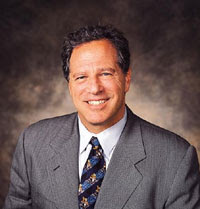His comments and information come as the CIRM Standards Working Group plans to dig into the topic again this Friday during a public hearing in Los Angeles. The issue of egg availability, however, goes well beyond California, reaching out to such places as the United Kingdom, where discounted IVF services are being offered to generate eggs for research.
Sheehy, also a member of the Standards Working Group, pointed to work being done by Cascade LifeSciences in San Diego and others to show that the egg shortage concerns of CIRM President Alan Trounson and Harvard's Kevin Eggan may be overstated.
Sheehy's starting point is a letter for reconsideration of Cascade's rejected application for a CIRM grant. Cascade's letter, which can be found here on the California Stem Cell Report, stated that the firm was collaborating with David Smotrich of the La Jolla IVF clinic to obtain eggs. Cascade said that the clinic had a "list of young and healthy volunteers who desire to donate oocytes specifically for this SCNT project. All these donors were pre-tested and demonstrated a high oocyte production (20-25 oocytes per cycle) in response to homornal stimulation."
Last week Sheehy queried Ken Woolcott, who wrote the reconsideration request, about the availability of eggs, which Sheehy recalled as being 100 a year. Sheehy also asked whether they were obtained under circumstances that would make them available for use by CIRM grantees i.e. proper consent, no payment outside of CIRM policy, etc.
In response, Woolcott, Cascade's chief business officer, emailed Sheehy that he checked with Cascade's primary investigator, Dr. Sophia Khaldoyanidi, as well as Smotrich, head of the collaborating La Jolla IVF clinic. Woolcott replied,
"Dr. Smotrich confirmed that the oocyte donors are only reimbursed for their time and medical care expenses. These donors are not IVF patients that receive discounts or are paid for their eggs. They tend to be donors that desire to enhance medical research in the Stem Cell area, are younger and have a track record of high oocyte quality and productivity.Sheehy said that Woolcott's information is "very important" if it "confirms that at least one investigator in California is able to obtain sufficient oocytes to conduct research within the confines of CIRM's ethical standards and the provisions of Prop. 71 and SB 1260(the law that deals with non-CIRM funded hESC research)."
"I believe that this is consistent with the draft guidelines prepared by CIRM and is consistent with the law in California. More importantly, any work in this area would be subject to IRB approval."
But the devil may well be in the details. In this case, does the La Jolla clinic's definition of reimbursement for "time and medical care expenses" match that of CIRM's?







